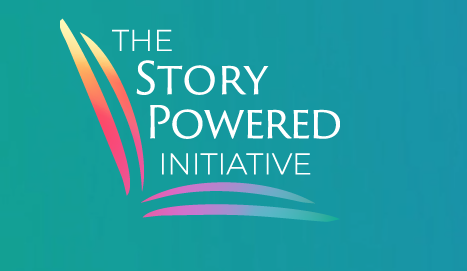
The Story Powered Initiative is a newly relaunched nationally focused initiative that addresses stigma and discrimination through sharing individual stories. Founded and led by Glenn Sterner, assistant professor of criminal justice at Penn State Abington and Consortium to Combat Substance Abuse (CCSA) affiliated faculty member, the initiative is an expansion of the Share Your Opioid Story initiative, which primarily addressed stigma surrounding opioid use and the opioid epidemic.
The Share Your Opioid Story began as a Pennsylvania-focused collaborative project with the Independence Blue Cross Foundation and the Pennsylvania Department of Drug and Alcohol Programs that zeroed in on opioid use disorder and the greater opioid epidemic in 2018. It eventually blossoming into a national movement featuring stories of all walks of life from all over the United States. Through the work of the Share Your Opioid Story project and addressing stigma associated with the opioid crisis, Sterner’s team realized that stigma continues to impact many members of our communities, not necessarily only those within the substance-use disorder community.
“More than ever before, individuals all over the country face discrimination and stigma daily regarding their race, ethnicity, gender, and sexual orientation,” said Sterner. “We also recognize that those who are justice-involved, have an intellectual or physical disability, experience a mental health diagnosis, and many others are often left behind. Through the Story Powered Initiative, we invite those who have experienced stigma at a personal, social, or systemic level to share their story and let their voice be heard.”
The Story Powered Initiative is one of many efforts of the Substance Use Stigma Reduction Collaborative, a working group within CCSA. Led by Sterner and Jennifer Murphy, program chair and associate professor of criminal justice at Penn State Berks, the collaborative seeks to enhance partnerships to engage in highly impactful research, create and implement evidence-based practices, and host community events that can reduce stigma. Additionally, the collaborative has also developed a collective of key faculty members and practitioners dedicated to research, outreach and teaching surrounding stigma.
When Sterner started this work in 2018 with the opioid crisis, he said that it was an uphill battle because the team needed to build trust within the substance use community. It took some time for people to feel comfortable sharing their stories because of possible personal or professional consequences from talking about themselves or a family member.
“Ultimately, I think that through story sharing, people are able to regain self-agency and feel empowered,” said Sterner. “It’s a way for people to talk about their experiences in a safe space and encourage others to not only do the same, but also foster a degree of empathy and solidarity from people who haven’t had those experiences. I think the more opportunities we have to help people feel included, the better off we all are.”
If you need assistance or know someone who is struggling, you can reach visit the Resources page of the Story Powered Initiative or connect with the team on Facebook, Twitter, or Instagram. If you or someone you know is interested in sharing their story, you can submit your story here or reach out to the team directly for more information.